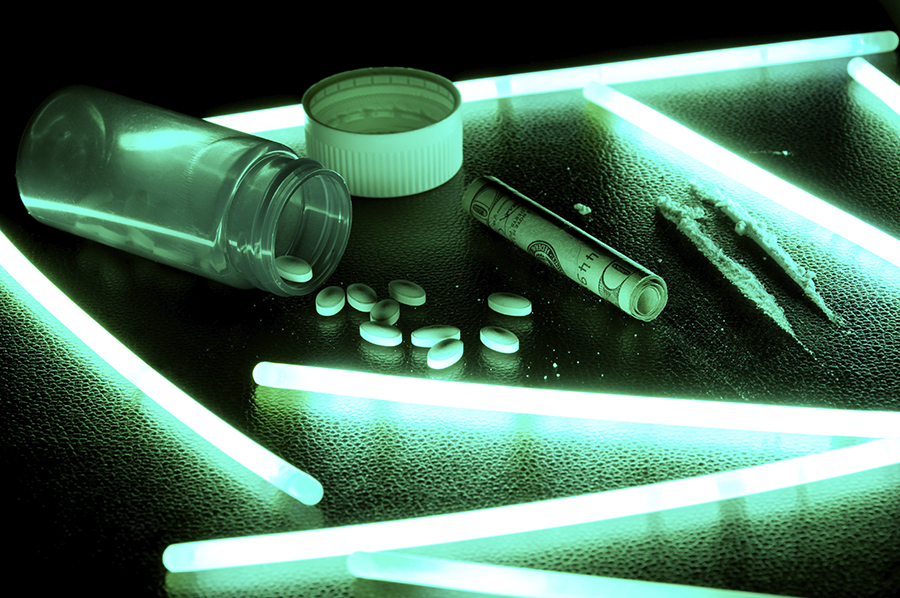Author: Justin Mckibben
Treatment for Molly Addiction: What is Molly?
The drug called ‘Molly’ has been marketed to teens and young adults all over as pure form of MDMA by dealers across the country, and those who take the drug believe they’re taking pure MDMA. To better understand what would make effective treatment for Molly addiction possible, it is important to know what this drug is and what it can do.
According to the Drug Enforcement Agency, only 13% of Molly contains any MDMA at all. MDMA (also known as ecstasy) is a synthetic drug that that acts as a hallucinogen and stimulant and alters the mind to bring on feelings of euphoria, and the common misconception of what Molly actually is, is a dangerous one. Experts involved in treatment for Molly addiction are aware that MDMA can cause:
- Increased heart rate
- Heavy sweating
- Teeth clenching
- Chills
- A very sharp increase in body temperature that can lead to organ failure and death
Molly samples have been investigated to uncover the reality behind its ingredients, and authorities have found Molly can sometimes contain addictive drugs, such as:
- Methamphetamine
- Heroin
- Ketamine
- PCP
- Amphetamines
The ingredients in Molly have been implicated in the emergency room visits and deaths of people who assumed they were taking pure MDMA.
Treatment for Molly Addiction: Molly Withdrawals
With treatment for Molly addiction, knowing the withdrawals that can come from excessive Molly abuse is important to assisting with that transition. Those who use Molly or MDMA often experience dehydration (which can lead to overheating, convulsing and seizing), as well as:
- Depression
- Paranoia
- Anxiety
- Confusion
Along with these effects on an individual using Molly, other withdrawal symptoms that are addressed with treatment for Molly addiction include:
- Fatigue
- Loss of appetite
- Trouble focusing
Treatment for Molly Addiction: Detox
As with most any treatment program, there will be a period of detox in treatment for Molly addiction. Detox is the part that most people are afraid to experience, which holds them back from getting the proper treatment, but with a medical detox program in treatment for Molly addiction there is often non-narcotic medication used to safely and comfortably wean individuals off of substances.
Trying do go ‘cold-turkey’ is never the easiest or safest way to try and get off any drug, and Molly is no exception. The medical staff is there to make sure that detox is completed in a healthy and effective process.
Treatment for Molly Addiction: Residential Rehab
After detox, which may last from 4 to 10 days depending on your progress, you will enter the next level of the program offered in treatment for Molly addiction. A detox program is too often misunderstood, and is typically not enough on its own to maintain lasting recovery.
Real recovery begins with the residential inpatient rehabilitation level of treatment for Molly addiction, called “rehab” for short. This can last anywhere from 30 days to a few months depending on your person recovery plan, which really is only a drop in the bucket compared to a lifetime. At the rehab level, individuals reside in a safe and comfortable environment where all basic needs will be met while they attend groups.
There is case management support, medical services, and a variety of therapy options available. Treatment for Molly addiction allows people to attend meetings, group therapy, and individual cognitive therapy where you will learn about substance abuse and be given the tools to use once the program has been completed. Treatment for Molly addiction can also address any dual diagnosis, or co-occurring issues such as depression, anxiety, as well as trauma-related issues.
Treatment for Molly Addiction: Aftercare
After the residential portion of treatment for Molly addiction, there is also the opportunity for aftercare, which an individual would want to develop a strategy for during inpatient residential rehab. Typically this can be included with intensive outpatient treatment (IOP) as a recovery plan that goes beyond the inpatient stage and helps someone maintain their new coping skills and provides some additional therapy and group sessions to continue assisting a recovering addict during this important transition.
Devising an aftercare plan helps an individual to continue to work actively for their sobriety, with support groups and continued therapy. Treatment for Molly addiction can mean a chance at a new life, and for most it can mean the difference between living and dying.
While many do not understand the reality of what risks they run with abusing MDMA and other drugs, there are many who are very aware of the dangers but who are still afraid of giving it up. With the right kind of treatment for Molly addiction anyone has a real fighting chance of changing for life. If you or someone you love is struggling with substance abuse or addiction, please call toll-free 1-800-951-6135
